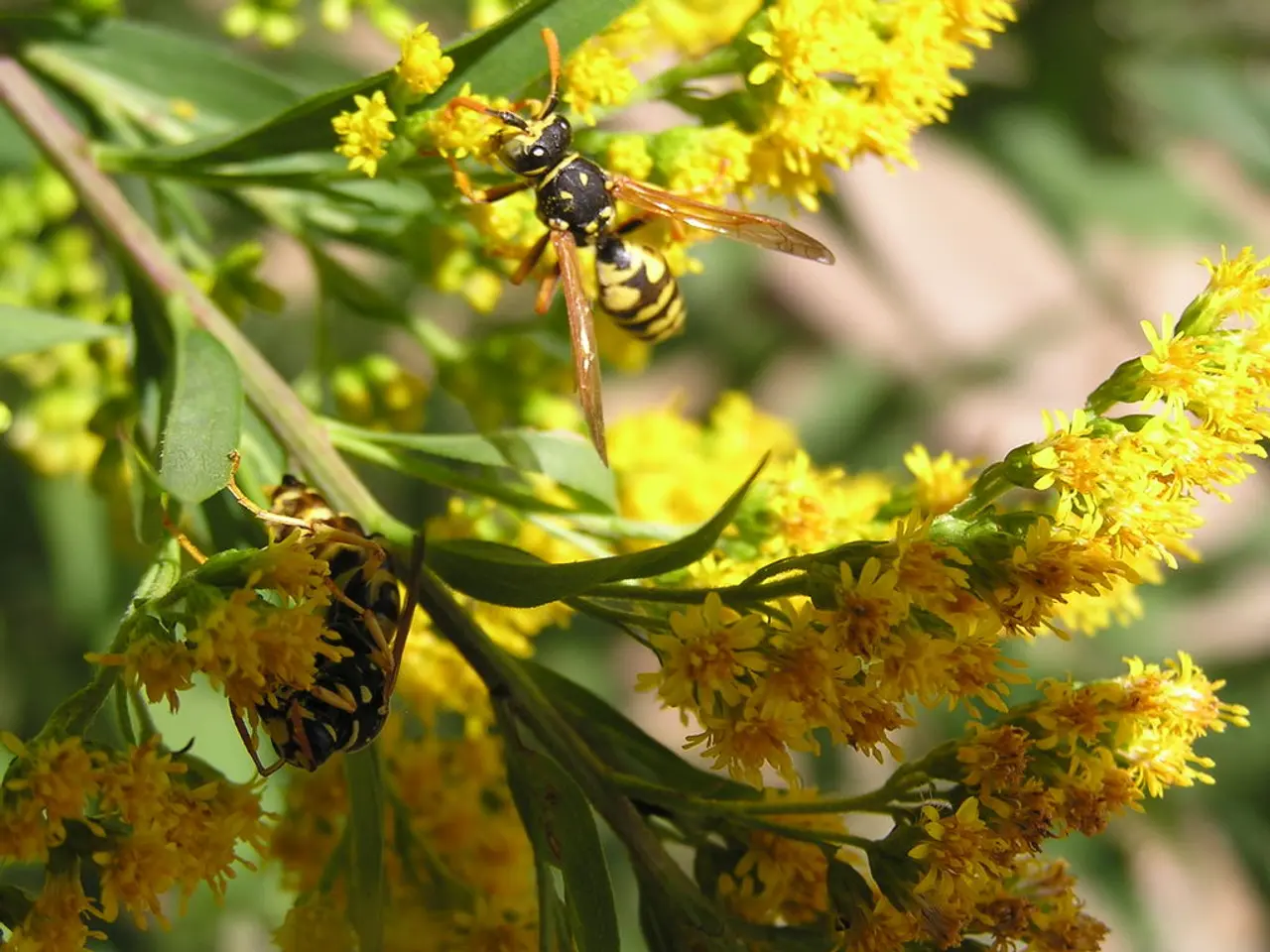Domestic Pest Management Solutions: Utilizing Common Household Items to Protect Your Garden
In the quest to maintain a thriving garden, combating soil pests is a crucial task. Here are five household items that can help you keep your plants healthy and pest-free.
### 1. Hydrogen Peroxide
Hydrogen peroxide is a versatile household product that can also be used to restore oxygen levels in the soil, keeping roots healthy. To use it as a pesticide, mix equal parts 3% hydrogen peroxide with water, and water your plants with this solution to kill gnats and other soil pests. However, be mindful not to overuse this method as it can harm beneficial microorganisms in the soil [2].
### 2. Diatomaceous Earth
Diatomaceous earth, a finely ground powder made from fossilized algae, can be an effective tool against soil pests. Sprinkle diatomaceous earth on the soil surface, and it will dehydrate insects, causing them to die. Ensure the soil is dry before application, as moisture reduces its effectiveness [5].
### 3. Neem Oil Solution
Neem oil, an organic, natural pesticide derived from the neem tree, can be used to kill bugs in plant soil. Mix the solution according to the product's instructions, typically mixing neem oil with water, and spray it on the soil and plants to target pests like aphids, mites, and whiteflies. Neem oil disrupts pest hormonal systems, inhibiting growth and reproduction. It is generally safe for beneficial insects like bees [1][5].
### 4. Insecticidal Soap
Insecticidal soap can be made at home by mixing 1 tablespoon of pure liquid soap, 1 quart of warm water, 1 teaspoon of ground red pepper or garlic, and 1 teaspoon of apple cider vinegar. This solution kills pests on contact, so thorough coverage is necessary. It is generally safe for plants but can cause damage if overused [4][5].
### 5. Rubbing Alcohol
While not a standard method for soil pests, rubbing alcohol can be used to kill pests on contact by dipping a cotton swab in alcohol and applying it directly to pests. Be cautious using rubbing alcohol, as it can damage plant tissues if applied excessively [6].
### General Tips
- Always test any solution on a small area first to check for plant sensitivity. - Rotate methods periodically to avoid pest resistance. - Monitor plants regularly for signs of pests to prevent infestations [3].
By incorporating these household products into your gardening routine, you can keep your plants healthy and pest-free. Happy gardening!
Maintaining a home-and-garden lifestyle often includes tending to a thriving garden, especially in the face of soil pests. To complement your gardening efforts, consider using home-based solutions like neem oil or insecticidal soap, which can help keep soil pests at bay while being generally safe for beneficial insects like bees.





